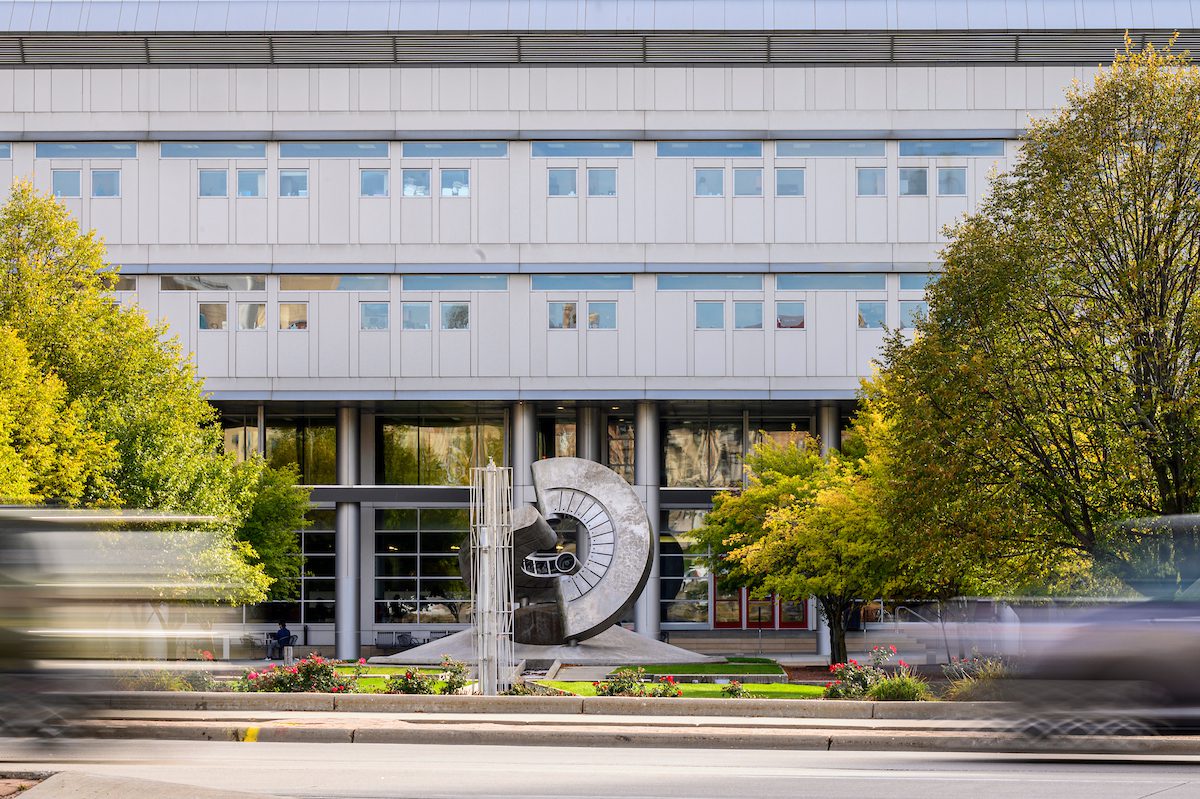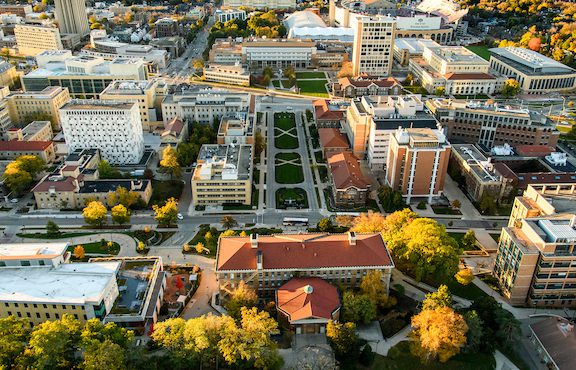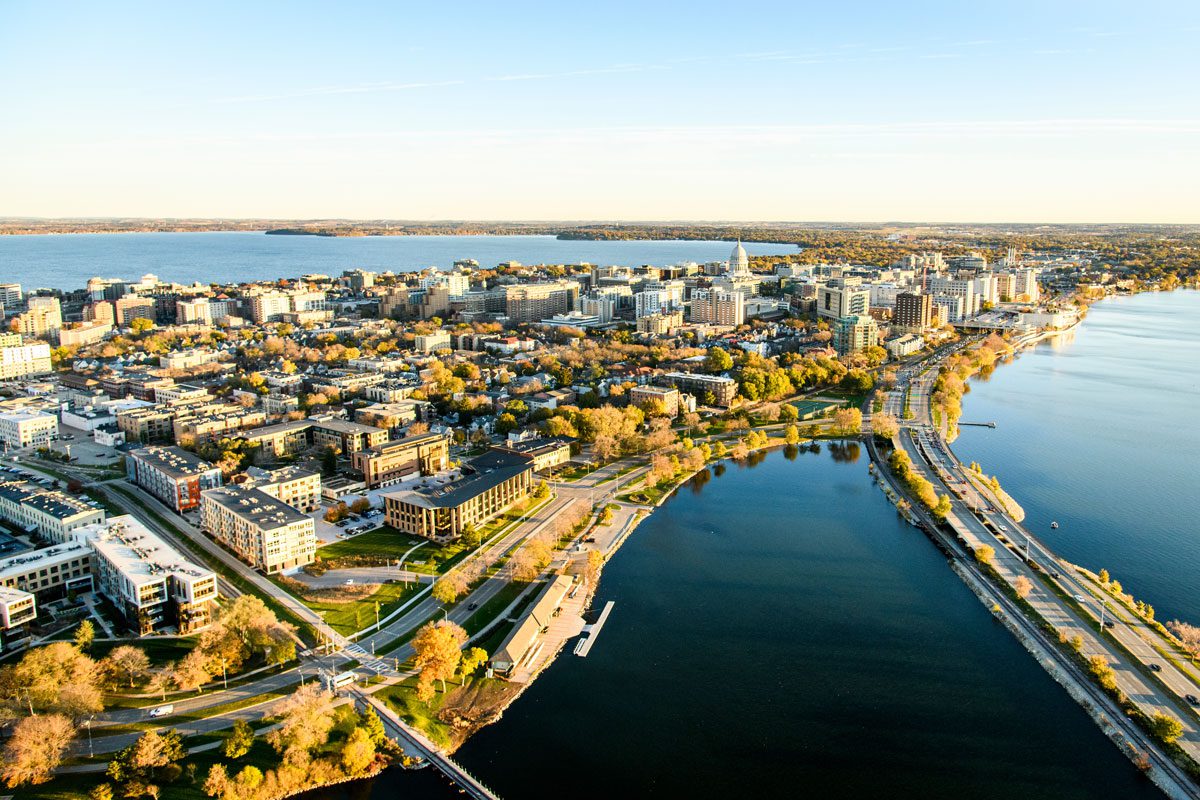Engineering: Sustainable Systems Engineering
Master of Engineering in Engineering
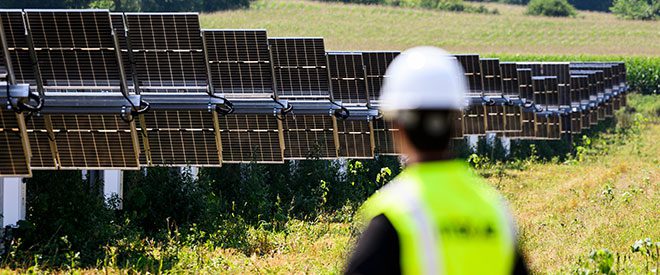
Turn your passion for healthy environments, economies, and societies into a career that drives positive change with the online Sustainable Systems Engineering master’s program from UW–Madison.
Is this program right for you?
Global changes have created demand for engineers who can lead innovation in sustainable human systems. As an engineer with sustainability interests, you are ready to learn the skills to assist governments, businesses, and communities around the world. The UW–Madison online Master of Engineering in Sustainable Systems Engineering program combines proven distance technology with courses taught by senior faculty who are experienced professionals in environmental science, sustainability, and engineering.
Designed for working professionals to accommodate your career, life, and travel schedules, our online platform is accessible from anywhere in the world. You work directly with faculty to tailor coursework that is specific to your industry and your career goals.
With flexible learning times and courses that immediately apply to real-world problems, you have the structure and support to stay on track for graduation—and to make our world greener and more sustainable.
Is this program right for you?
Global changes have created demand for engineers who can lead innovation in sustainable human systems. As an engineer with sustainability interests, you are ready to learn the skills to assist governments, businesses, and communities around the world. The UW–Madison online Master of Engineering in Sustainable Systems Engineering program combines proven distance technology with courses taught by senior faculty who are experienced professionals in environmental science, sustainability, and engineering.
Designed for working professionals to accommodate your career, life, and travel schedules, our online platform is accessible from anywhere in the world. You work directly with faculty to tailor coursework that is specific to your industry and your career goals.
With flexible learning times and courses that immediately apply to real-world problems, you have the structure and support to stay on track for graduation—and to make our world greener and more sustainable.
Admissions requirements
All applicants must:
- Have a Bachelor of Science degree in engineering from an accredited institution, however a bachelor’s degree in other STEM fields, will be considered.
- Have a minimum undergraduate GPA of 3.0 on the last 60 credits of degree or a master’s degree with a minimum cumulative GPA of 3.0.
- Submit evidence of English language proficiency, if applicable. The required proficiency scores are: TOEFL IBT 92, PBT 580; or IELTS 7.0.
- GRE is not required. Applicants who have taken the test are encouraged to submit their scores.
To apply:
- Online application
- Resume/CV
- Essay
- Transcripts
- Three letters of recommendation
Connect with us
Application Assistance: Accelerated Engineering Master's Programs
August 22
9-9:30 a.m.
Join program staff to learn about the College of Engineering Accelerated Master's programs and application best practices. You’ll leave knowing what you need, and how to successfully apply.
Register for Application Assistance: Accelerated Engineering Master's Programs
Pathways: College of Engineering Accelerated Programs
September 26
noon-12:30 p.m.
Learn about the College of Engineering accelerated master’s programs, curriculum, and potential post-graduation career paths.
Register for Pathways: College of Engineering Accelerated Programs
Program highlights
- After completing our curriculum, you will not only have an understanding of tomorrow’s clean energy principles, but you will also understand the structure of those in place today.
- Individuals in the program work directly with faculty to tailor coursework that is directly relevant to their industry and career goals.
- In this transition to clean energy, you need both the visionary skills and the structural history of our current energy systems. We teach you how to navigate this transition and push forward clean energy principles.
How you'll learn
- Fully online curriculum; you choose when you do most of your work each week.
- Complete required courses, approved electives (offered flexibly each semester), and a capstone project—as your schedule and your timeline allow.
- Work directly with faculty to tailor coursework that is directly relevant to your industry and career goals.
- Attend courses virtually, alongside peers working for top employers around the world.
Sample curriculum
Science/Sustainability
- Renewable Energy Systems
- Energy Resources
- Plastics Recycling and Sustainability
- Core Competencies of Sustainability
- Environmental Sustainability Tools
Engineering/Design
- Wind Energy 3D (Develop, Design, Deliver)
- Sustainable Systems Engineering Capstone (required)
- ST: Solar PV Development and Design
- Geothermal Energy Systems
- Sustainable Facilities
- Energy Efficiency in Buildings
Electives
- Sustainable Energy Challenges and Solutions
- Engineering Economics and Management
- Presentations for Professionals
- Organizational Communication
- Change Management
- Creating Breakthrough Innovations
Want to sample an online course?
Test drive Canvas, our online learning platform, with modules from an actual UW–Madison master’s program.
Ready to learn more about Engineering: Sustainable Systems Engineering?
View the UW-Madison Guide
Stay in touch
Sign up to receive application tips and deadline reminders.
Connect with our enrollment coaches
Our friendly, knowledgeable enrollment coaches are here to answer your questions. Contact an enrollment coach to:
- Learn how to make this program work with your life/schedule
- Get help with your application
- Determine if financial aid is available
Visit with our coaches on campus or at an upcoming student fair in your area. Search student fairs & events.
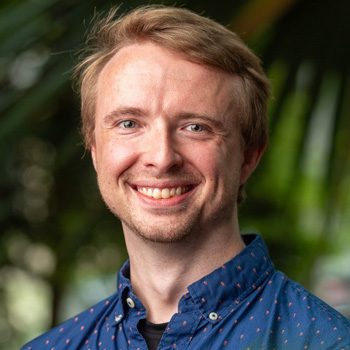
I love the professors that I’ve had; all of my them are subject matter experts. They’re all people who have worked in this industry for a while, and they’re super active in the field, too. It’s really cool to see people at the forefront of what we’re learning about. And they actually have a passion for it, too.
Kevin Callahan | MEx'26
